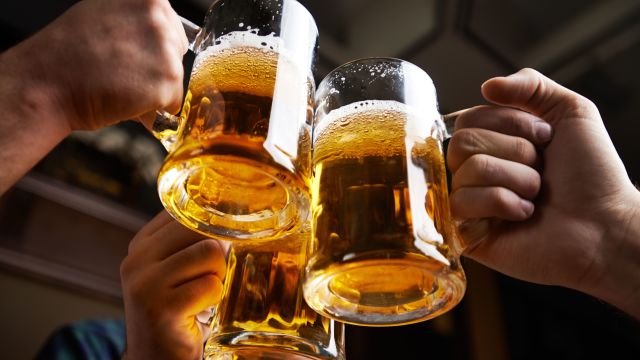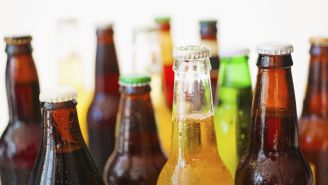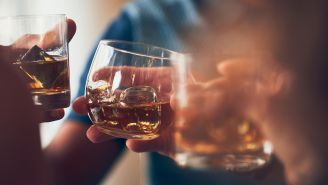Updated on November 3, 2022.
Whether you're having beers with a buddy or celebrating Wine Wednesday with your BFFs, a choice beverage can help make for a memorable evening. The potential problem: Aside from the long-term health downsides of drinking, overdoing it on any given occasion could give you some brutal next-day symptoms.
Before you try any iffy home remedies, it helps to know why hangovers happen in the first place. Here’s the science behind them, plus proven tips on how to prevent a hangover—or make the morning after as painless as possible.
Why you get hangovers
Researchers have identified a few possible explanations for hangovers, though more studies are needed to determine the exact cause. Any of these can contribute to your feeling run-down when the buzz wears off:
- Dehydration: Alcohol is a diuretic, which means it causes you to urinate more frequently. If you lose fluids faster than you’re able to replace them, you can become dehydrated. Dehydration may lead to hangover symptoms like headaches, dizziness, dry mouth, and mental fog.
- Inflammation: People with hangovers have been found to have higher levels of cytokines in their blood. Cytokines are proteins that your immune system releases when it detects a threat. They’re a key part of the inflammation process, which sets your body’s defenses in motion. Inflammation causes pain, swelling, and redness around injuries and body aches and fevers when you have the flu. When the "threat" to your body is alcohol, inflammation may be to blame for symptoms like aches, tiredness, and irritability.
- Toxin buildup: When alcohol breaks down in your body, it releases a harmful chemical called acetaldehyde. This toxin builds up in your blood and tissues, causing flushed skin, nausea, and a number of other symptoms.
- Gastrointestinal problems: Alcohol irritates your stomach lining. This causes a release of acid, which can trigger nausea.
Alcohol can also disrupt sleep, though you may have heard that it helps you fall asleep faster. While it has that effect on some people, the quality of that sleep is often poor, adding to fatigue.
Why some people are more sensitive to hangovers
Is your morning-after headache harsher than your friend’s, even after drinking the same amount? If so, there may be a number of factors at work. The severity of hangovers depends on how much and how quickly you drank, along with:
- Your age: As you get older, your liver, kidneys, and immune system all work at a slower pace. This causes alcohol and its toxins to stay in your system longer.
- Your sex: Drink for drink, alcohol tends to have a stronger effect on women than on men.
- Your genes: Certain people inherit a genetic mutation that causes their bodies to turn alcohol into acetaldehyde at a faster rate than the average person. That makes the toxin build up in their systems more quickly than they’re able to eliminate through urine. They may even start to experience symptoms like flushing while they’re still drinking. People with East Asian heritage are prone to this condition.
- What you’ve had to eat that day: You're more likely to get drunk and wind up with a nastier hangover if you drink on an empty stomach. That’s because alcohol is absorbed from your digestive tract and into your bloodstream faster when there’s no food to slow it down.
What you drink matters
The drinks you choose may also affect your hangover risk. Some people, for example, are more sensitive to preservatives found in wine called sulfites. They may develop headaches after imbibing wine.
Dark alcohols such as whiskey and brandy contain high concentrations of chemicals called congeners. These compounds, which form during the alcohol fermentation process, can make hangovers worse. They also take longer to leave your system than alcohol. This is why hangovers from dark beverages tend to linger.
How to prevent or minimize a hangover
To prevent a hangover, or at least reduce your chances of getting one, try to alternate drinking alcohol with water to protect against the effects of dehydration. If you do drink, stick to one type of alcohol for the evening. If possible, select clear alcohols like vodka or white wine to minimize your intake of headache-inducing congeners.
How you mix your drinks may also affect your hangover. For starters, choose juices, sodas, and craft cocktail ingredients to add to your beverage, rather than other alcohols. If you decide to mix with soda, pick regular instead of diet if possible. The sugar in regular soda slows down the rate at which alcohol is absorbed into your bloodstream. That means you may get drunk faster if you mix with diet soda.
Lastly, beware of mixing alcohol with energy drinks. The caffeine can keep you awake, making you more likely to drink to excess.
Tips for bouncing back the next morning
Hangovers are unpredictable: You could wind up with one despite your best efforts to avoid it. That’s because there’s so much variety when it comes to beverage choices, and each alcohol may affect each person differently. If you wake up feeling under the weather and need some quick hangover help, here are some tips to get you through the day:
Skip the Bloody Mary. The old 'hair of the dog' approach is simply a myth: Drinking the next morning will only make you drunk again. You might feel better briefly, but a hangover still awaits.
Hydrate. Drink plenty of water to ease dehydration symptoms and help flush toxins out of your system.
Don’t fall for popular 'hangover cures.' From bacon grease to Tabasco sauce, there are plenty of rumors about how to fix a hangover. But there are no science-backed home remedies or products that work. Instead, if you have to relieve a headache or body aches, reach for an anti-inflammatory medication like ibuprofen or naproxen. (They can irritate your stomach, so take them with a light snack and remember to stay hydrated.) Avoid acetaminophen (Tylenol) since taking it with alcohol interferes with your liver’s ability to work properly.
Of course, the best method for preventing a hangover is to abstain from alcohol in the first place. But if you do imbibe, the only way to truly treat your symptoms is with fluids, anti-inflammatory meds, and rest.







